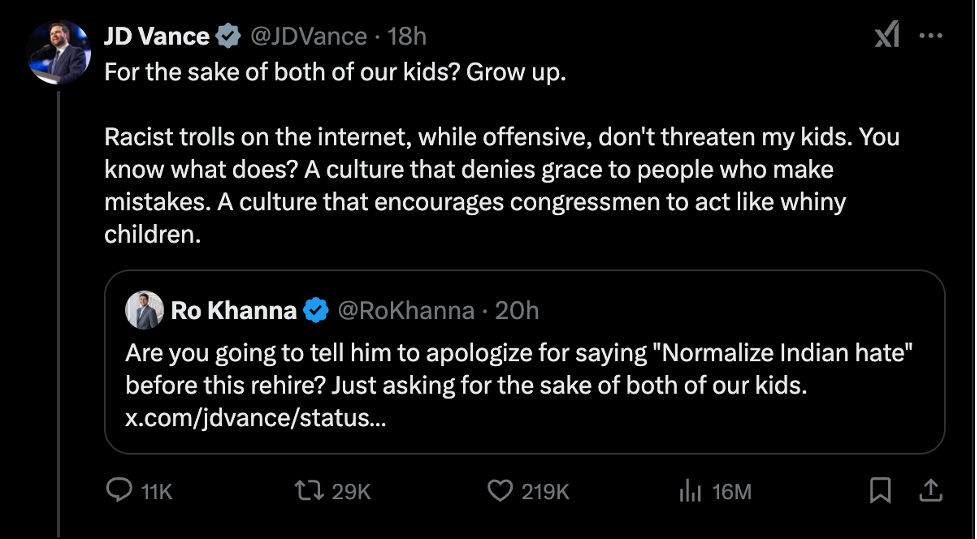Grace and Prejudice in Cancel Culture
How the Apostle Peter Learned of Grace and Partiality in the Gospel
Vice President Vance recently commented on a controversy involving DOGE staffer Marko Elez, who used a pseudonymous account to post prejudicial statements, including "Normalize Indian hate."
In response, Vance tweeted that while Elez's posts were "stupid," they didn't warrant destroying someone's life. He specifically criticized journalists for attempting to "cancel" Elez professionally.
Vance also argued for creating a culture that extends grace to those who make serious mistakes like Elez's.
While I wish Vance would have pointed to the moral wrongness of ethnic prejudice, the whole situation reminds me of the apostle Peter in Acts.
The apostle found it difficult to accept that Gentiles could be accepted into the kingdom of God as Gentiles. God revealed to him in vision, experience, and Spirit that God does not show partiality—but saves each according to the grace given to them.
Grace and Prejudice
Peter's journey toward accepting Gentiles helps us to hold these two realities together: grace and prejudice. Even after receiving a divine vision about God's acceptance of Gentiles, Peter struggled with his own biases, even temporarily reverting to excluding Gentiles (Galatians 2:11-14).
God had revealed to Peter in Acts 10 that the Gospel extends to all corners of the world. This revelation profoundly changed Peter's perspective, leading him to warn against a faith that shows partiality based on ethnicity, parentage, homeland, or adherence to Mosaic Law. Consider these statements of Peter:
After seeing a vision from God, Peter writes: "God has shown me that I should not call any person common or unclean" (Acts 10:28). God can make all persons clean through the Gospel.
Speaking of Jews and Gentiles, Peter a bit later claims: "Truly I understand that God shows no partiality, but in every nation anyone who fears him and does what is right is acceptable to him" (Acts 10:34-35). God accepts all regardless of homeland.
In Acts 10:36-43, Peter affirms universal salvation through belief in Christ, regardless of background.
He later acknowledges in Acts 11:17 that both Jews and Gentiles share one Spirit, asking, "Who was I that I could stand in God's way?"
Finally, in Acts 15:10-11, he emphasizes that salvation comes through Jesus's grace, not through the Law of Moses: “we will be saved through the grace of the Lord Jesus, just as they will” (Acts 15:11). (On these points, see Schreiner, Acts 319)
Grace and Acceptance
I won't offer a political verdict on the DOGE staffer's case; I lack the full context. However, I can affirm that judging people based on ethnicity contradicts the Gospel message revealed to Peter.
Simultaneously, we must extend grace to those who, like Peter in Galatians 2:11–14, fall into patterns of prejudice or partiality. Without such grace – the kind extended to Peter and to people like myself – life becomes unbearable.
I don’t want to live in that kind of world. Neither should you.




